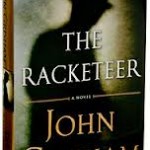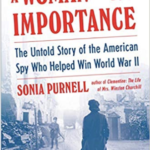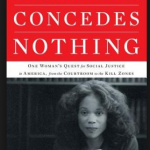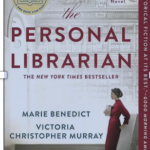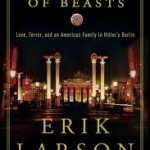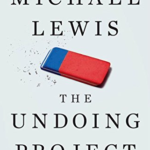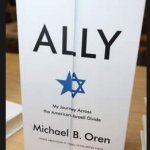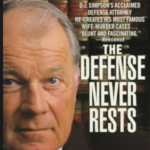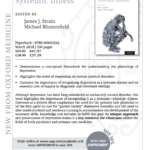November 19th, 2013 — 1:03am
 Americanah by Chimamanda Ngozi Adichie This is a novel about Ifemelu an attractive bright young woman who grows up in Lagos, a city in Nigeria. She falls in love with Obinze and they seem to be a perfect pair meant for each other. However like many educated young people from Nigeria she is driven to explore horizons beyond her environment and finds a way to come to America. We are able to follow her on this at times torturous journey. We come to understand her relationships with the people that she meets and her love life with several men as well as her career which includes, not surprisingly, being a writer and eventually a blogger. We see through her eyes how she is viewed by Americans both black and white and the distinctions that she draws between Non-African Black and African Black. The reader gains thoughtful and at times jolting insights into the complexities of the meaning of what might be considered an incidental task and that is how she decides to have her hair done. Ifemelu’s decision to return to Nigeria allows the reader to gain a further prospective on some of the views of her countrymen and women towards America as well as her view of her country based on her years of living in the U.S. Make no mistake, Ifemelu the main character should not be considered a stereotype of Africans or even of Nigerians. She is a product of her environment and all the experiences to which she has been exposed. Her life and the choices which she makes can be understood and identified with by many of the readers from different backgrounds. The idea that there is no single story for one group of people is something very important to the author.
Americanah by Chimamanda Ngozi Adichie This is a novel about Ifemelu an attractive bright young woman who grows up in Lagos, a city in Nigeria. She falls in love with Obinze and they seem to be a perfect pair meant for each other. However like many educated young people from Nigeria she is driven to explore horizons beyond her environment and finds a way to come to America. We are able to follow her on this at times torturous journey. We come to understand her relationships with the people that she meets and her love life with several men as well as her career which includes, not surprisingly, being a writer and eventually a blogger. We see through her eyes how she is viewed by Americans both black and white and the distinctions that she draws between Non-African Black and African Black. The reader gains thoughtful and at times jolting insights into the complexities of the meaning of what might be considered an incidental task and that is how she decides to have her hair done. Ifemelu’s decision to return to Nigeria allows the reader to gain a further prospective on some of the views of her countrymen and women towards America as well as her view of her country based on her years of living in the U.S. Make no mistake, Ifemelu the main character should not be considered a stereotype of Africans or even of Nigerians. She is a product of her environment and all the experiences to which she has been exposed. Her life and the choices which she makes can be understood and identified with by many of the readers from different backgrounds. The idea that there is no single story for one group of people is something very important to the author.
After I completed this book, I wanted to know to know more about the author.I found this video clip of Ngozi Adichie giving the prestigious TED lecture. I highly recommend it to anyone who may be considering spending time with this novel as it will give you an idea of intelligence and thoughtfulness of the author
The link is :
http://www.ted.com/talks/chimamanda_adichie_the_danger_of_a_single_story.html?quote=559
There was a passage in the book which was one of several blogs written by Ifemelu, which struck me as a clear descriptions of racism in America. While it is only a small part of the book, I thought it was worth repeating and using it to demonstrate the value of reading this book:
Understanding America for the Non-American Black: A few Explanations of What Things Really Mean
1-Of all their tribalisms, Americans are most uncomfortable with race, If you are having a conversation with an American, and you want to discuss something racial that you find interesting, and the American says, “ Oh, it’s simplistic to say it’s race, racism is so complex,” it means they just want you to shut up already, Because of course racism is complex. Many abolitionists wanted to free the slaves but didn’t want black people living nearby. Lots of folk today don’t mind a black nanny or black limo driver. But they sure as hell mind a black boss. What is simplistic is saying “It’s so complex.” But shut up anyway, especially if you need a job/favor from the American in question.
2. Diversity means different things to different folks. If a white person is saying a neighborhood is diverse, they mean nine percent black people (the minute it gets to ten percent black people, the white folk move out.) If a black person says diverse neighborhood, they are thinking forty percent black.
3. Sometimes they say “culture” when they mean race. They say a film is “mainstream” when they mean “white folks like it or made it,” When they say “urban” it means black and poor and possibly dangerous and potentially exciting. “Racially charged” means we are uncomfortable saying “racist.”
Comment » | FG - Fiction General, FR - Fiction Romance
November 1st, 2013 — 10:39am
Still Foolin’ ‘Em by Billy Crystal –  March 14, 2013, Billy Crystal was 65 years old. He now lives in Los Angeles and has been married to the same woman and has two daughters and 4 grandchildren. He is a very popular comedian as well as an actor and director. He is best known for the movies When Harry Met Sally, City Slickers and Analyze This. He has hosted the Oscars on TV nine times, has won several Emmys and has starred on Broadway and around the country with his Tony award winning one man shows 700 Sundays in which he relives his childhood where his father died when he was 15 years old.
March 14, 2013, Billy Crystal was 65 years old. He now lives in Los Angeles and has been married to the same woman and has two daughters and 4 grandchildren. He is a very popular comedian as well as an actor and director. He is best known for the movies When Harry Met Sally, City Slickers and Analyze This. He has hosted the Oscars on TV nine times, has won several Emmys and has starred on Broadway and around the country with his Tony award winning one man shows 700 Sundays in which he relives his childhood where his father died when he was 15 years old.
This book is his reflections on his life as he reaches this milestone of 65 years. It is personal, funny, revealing and an inside view of show business life in New York and Los Angeles. He shares personal stories about his family and friends. The latter include Mohammad Ali, Rob Reiner, Mickey Mantle, Dick Schaap, Bob Costas, Richards Lewis to name just a few and hundreds of other very well know persons with whom be came very close as they worked together including Sophia Loren who he mainly knew in his fantasy life.
This book is far from superficial. He goes into great detail on subjects from the making of When Harry Met Sally, his meticulous preparation for the Oscar TV shows and the rituals before each performance of 700 Sundays. He also is quite elaborate about the dying and death of his beloved Uncle Bern. He even devotes an entire chapter to going to buy a cemetery plot for himself and his wife. Crystal shares an event which is the contender for the highlight of his life (along with the birth of his children and grandchildren and some other events) and that is the day he was made a member of the New York Yankees so he could get one time at bat in a game against a major league pitcher. (He fouled off one pitch with a line drive down the right field line and than ran the count to 3 and 2…) Baseball was a very important part of his life.
There is no false modesty in this book. Crystal shares the details of a very successful career. If you have enjoyed seeing him perform over the years you will love this book.
Comment » | AM - Autobiography or Memoir
November 1st, 2013 — 12:29am
 The Circle by Dave Eggers Some of you may have read George Orwell’s 1949 book titled 1984 in which he envisioned a time in the future when “ Big Brother” will always be watching you. That book predicted a society in which everyone was under scrutiny by the omnipresent government. Now almost 65 years after the publication of that book Dave Eggers comes out with The Circle in which he envisions a society where everyone is under scrutiny by everyone else.
The Circle by Dave Eggers Some of you may have read George Orwell’s 1949 book titled 1984 in which he envisioned a time in the future when “ Big Brother” will always be watching you. That book predicted a society in which everyone was under scrutiny by the omnipresent government. Now almost 65 years after the publication of that book Dave Eggers comes out with The Circle in which he envisions a society where everyone is under scrutiny by everyone else.
The story opens as Mae, a young woman a few years out of college is about to take a job with the most avant-garde company (think a combination of Apple, Google, Microsoft). As expected she encounters a beautiful campus with every amenity to make the life of it’s employees comfortable and worry free. She soon learns that to do the job that is expected, one must be responsive to your customers and co-workers. There may seem to be nothing unusual about this well-known business principle. But the day of easy communication via computer, phone and now a special wristband is easy to do but involves very large numbers of interested coworkers and the now involved general public which in turn requires massive meticulous tracking procedures. So at a worker’s desk at this wonderful company there are at least 2 large computer screen keeping track of 1000s of customer responses and a growing numbers of “friends” and co-workers with whom you meet and interact The number of screens at your desk will soon grow as will the time a conscientious worker spends responding to messages. There is of course some built in competition for those who want to be recognized for doing a good job. But no worry, workers can stay overnight in special beautiful hotel like dormitories and there are all sorts of educational and social programs on campus.
There are special programs built in to keep track where everybody is at any moment (our new cell phones do that today). This is just the tip of the iceberg. The story of The Circle is not just about the ever increasing amount of information and data that can be accumulated, tracked and used for seemingly good purposes. The book is also about a handful of people in addition to Mae and Annie (her friend who brought her to the company and has been one of her biggest advocates) and how this new information culture is impacting on them and the people around them. For example, Mae’s parents initially are so happy to benefit by being given free quality health insurance because Mae is their daughter. They soon will regret they and their daughter ever had anything to do with this massive corporation. The company comes up with an invention in which a person wears a camera around his or her neck and just about everything they do and experience is traceable on this world wide communication system. A politician volunteers to wear this camera and becomes “ transparent” so no one can ever accuse her of being two faced, secretive or untruthful because everything she does is known. Soon most politicians end up doing the same thing.
Most intriguing are the three founders or “ leaders” of the company (remind you of the term used for the honchos in China?). There is Ty, the young techno genius who may not have thought through all the implications of his initial innovations, which led to the founding of the company. There is Bailey, another one of the big three leaders, who believes that knowing and seeing all will lead to a better world for all. Then there is Stetson , the cold calculating man who realizes that the more you control, the more money the company can make. By encompassing these 3 characteristics as three different people who together embody the company, we are better able to understand the essence of The Circle (name of the company) which is about to come around 360 degrees and essentially take over the lives of everyone.
Do not fret, you can safely read this book on your electronic reader. You will have control on your Facebook who you want to friend and you can decide if you want to Tweet. It also isn’t necessary for you to carry an open camera for everyone on earth to have access to you. But what if everyone else did this and suggested that you had something to hide? Perhaps the circle is closing faster than we realize.
Comment » | FG - Fiction General, FSF - Fiction Science Fiction
 Americanah by Chimamanda Ngozi Adichie This is a novel about Ifemelu an attractive bright young woman who grows up in Lagos, a city in Nigeria. She falls in love with Obinze and they seem to be a perfect pair meant for each other. However like many educated young people from Nigeria she is driven to explore horizons beyond her environment and finds a way to come to America. We are able to follow her on this at times torturous journey. We come to understand her relationships with the people that she meets and her love life with several men as well as her career which includes, not surprisingly, being a writer and eventually a blogger. We see through her eyes how she is viewed by Americans both black and white and the distinctions that she draws between Non-African Black and African Black. The reader gains thoughtful and at times jolting insights into the complexities of the meaning of what might be considered an incidental task and that is how she decides to have her hair done. Ifemelu’s decision to return to Nigeria allows the reader to gain a further prospective on some of the views of her countrymen and women towards America as well as her view of her country based on her years of living in the U.S. Make no mistake, Ifemelu the main character should not be considered a stereotype of Africans or even of Nigerians. She is a product of her environment and all the experiences to which she has been exposed. Her life and the choices which she makes can be understood and identified with by many of the readers from different backgrounds. The idea that there is no single story for one group of people is something very important to the author.
Americanah by Chimamanda Ngozi Adichie This is a novel about Ifemelu an attractive bright young woman who grows up in Lagos, a city in Nigeria. She falls in love with Obinze and they seem to be a perfect pair meant for each other. However like many educated young people from Nigeria she is driven to explore horizons beyond her environment and finds a way to come to America. We are able to follow her on this at times torturous journey. We come to understand her relationships with the people that she meets and her love life with several men as well as her career which includes, not surprisingly, being a writer and eventually a blogger. We see through her eyes how she is viewed by Americans both black and white and the distinctions that she draws between Non-African Black and African Black. The reader gains thoughtful and at times jolting insights into the complexities of the meaning of what might be considered an incidental task and that is how she decides to have her hair done. Ifemelu’s decision to return to Nigeria allows the reader to gain a further prospective on some of the views of her countrymen and women towards America as well as her view of her country based on her years of living in the U.S. Make no mistake, Ifemelu the main character should not be considered a stereotype of Africans or even of Nigerians. She is a product of her environment and all the experiences to which she has been exposed. Her life and the choices which she makes can be understood and identified with by many of the readers from different backgrounds. The idea that there is no single story for one group of people is something very important to the author.
